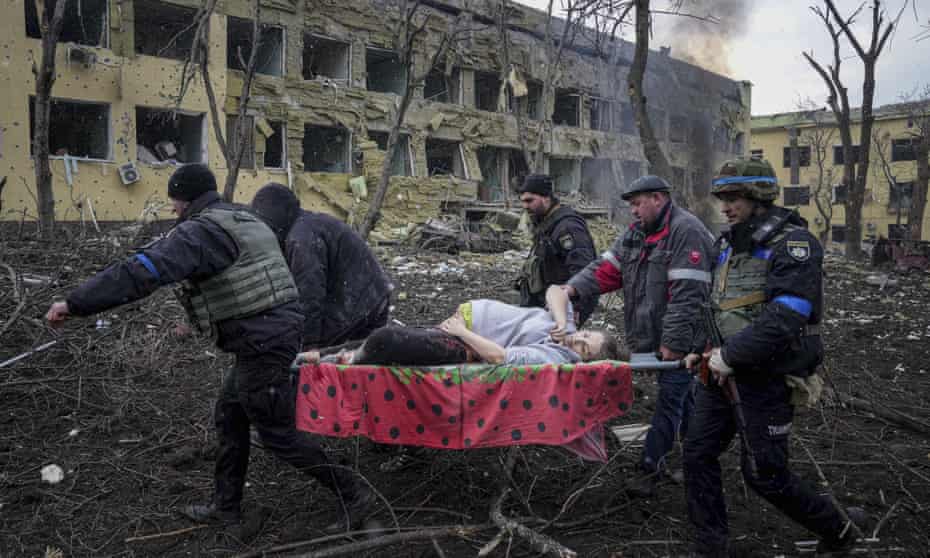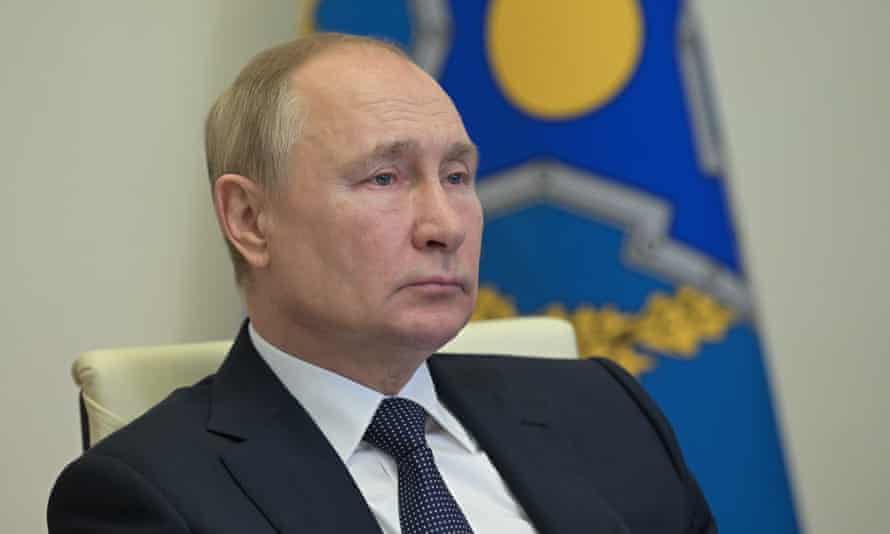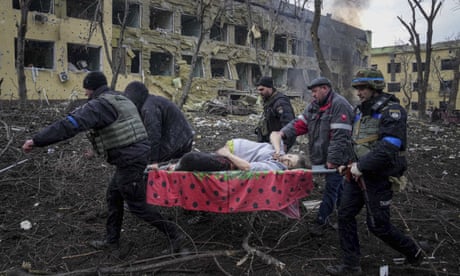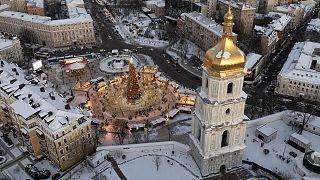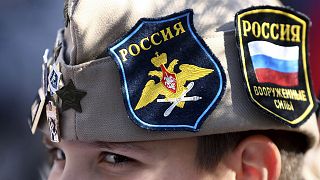By AMIR-HUSSEIN RADJY
March 11, 2022

1 of 9

1 of 9
A bridge under construction is part of mega projects that include building new cities, roads, bridges and tunnels as the government tries to ease traffic on congested roads in one of the world's most crowded cities, in the Giza suburb of Cairo, Egypt, July 19, 2021. The massive road construction projects have erased some of the oldest remaining green spaces in Egypt’s capital.
(AP Photo/Nariman El-Mofty, File)
CAIRO (AP) — A few months ago, Choucri Asmar decided he wasn’t ready to give up hope. So he led a group of residents in “a peaceful demonstration to protect the trees” of his Cairo neighborhood.
Egyptian authorities were planning to clear out a large avenue of ficus, acacia and palm trees — part of sweeping urban redevelopment projects that are transforming much of historic Cairo.
“It was like a war on green,” Asmar said.
Asmar and other residents of Heliopolis — an old neighborhood that boasts some of the city’s most important early 20th-century buildings — numbered the trees lining Nehru Street, labeling each of them after famous Egyptian figures. Five days later, police took the signs down and Asmar got a warning from security officials. The trees have survived, for now, while many others nearby have not, their wood sawed into pieces and towed away in trucks.
Part of the adjoining park was razed to erect a stone monument commemorating Cairo’s road and highways development, while a nearby public garden dating from the early 20th century was demolished to make way for a new street and state-owned gas station.


Workers load recently cut tree branches on a government vehicle, in Cairo, Egypt, Feb. 17, 2022 Massive road construction projects have erased some of the oldest remaining green spaces in Egypt’s capital. As Egypt prepares to host the global climate conference COP27 this year, activists say they’re in a tough fight to save what trees remain. (AP Photo/Amr Nabil)
Asmar said that between August 2019 and January 2020, Heliopolis lost an estimated 396,000 square meters (about 100 acres) of green space.


The remains of a giant tree is left in a public green space that was replaced by a new highway, in a median on Gesr Al Suez street, in Heliopolis, in Cairo, Egypt, Dec. 26, 2019.
“And then we stopped counting, but lost much more,” he said. He described feeling disoriented on once-familiar streets.
That’s roughly 73 football fields worth of greenery in just one neighborhood of the sprawling metropolis that stretches from the Pyramids at Giza in the west, across the Nile River, to new modern developments in the east. Heliopolis accounts for no more than one fifth of the capital in area. Cairo’s population of roughly 20 million is spread over some 648 square kilometers (250 square miles), making it one of the densest cities in the world.
Egypt’s environmental record is under scrutiny as it hosts the U.N. climate conference COP27 in the Red Sea resort town of Sharm el-Sheikh in November.
An official at Egypt’s Ministry of Environment did not respond to a request for comment on the loss of urban green spaces. Other officials have said that better roads will ease traffic, and promised that the new developments will include large parks and incorporate as much vegetation as possible. One plan, announced in government media, is for a park in the historic center, incorporating a large archeological zone.
Much of Cairo’s redesign and new highways aim to service a new capital under construction on the city’s outskirts. It’s the flagship mega-project of President Abdel Fattah El-Sissi, who says he is rebuilding the economy after years of political turmoil.
In recent years, grassroots groups have sprung up in different areas of Cairo to try to protect the city’s urban identity. Asmar is a member of the Heliopolis Heritage Initiative, founded in 2011.
Sarah Rifaat lives a five-minute walk from Mesaha Square, a rare leafy spot in Giza, a neighborhood of high-rises. A few months ago, she was jolted into action by a video of a forklift leveling the square’s garden. She joined a WhatsApp group where residents expressed concern over the loss of green space. Residents organized a petition, but paving over of the garden continued.
“There’s a sense of collective connection to trees that I haven’t seen before,” she said.
Activists have scored some wins, including halting the commercial redevelopment of the Fish Garden, a park in the city’s central Zamalek area. Rifaat has seen some urban improvements initiated by city officials as well, but says there is no accountability among decision-makers.
Cairenes are struggling to come to terms with a rapidly changing city, where many public spaces have been taken away or commercialized, she said. Rifaat believes that protecting neighborhoods has become a final form of protest, as the space for civil society in Egypt keeps shrinking.
Backed up by residential groups across the city, environmental lawyer Ahmed Elseidi is leading a case before Egypt’s highest administrative court that he hopes will oblige the government to replant trees and protect Cairo’s few remaining green spaces.
The government is required by law to carry out public consultations and environmental impact reports on highway construction that has torn through many old neighborhoods, he said. The law protects green spaces, designating trees as public property, he added.
Elseidi said he has submitted documents showing that no environmental studies were conducted ahead of any road projects, including in Heliopolis.
Rim Hamdy, a botany professor at Cairo University, said some types of trees could vanish from city streets. Thirty-five varieties of Australian eucalyptus once grew along Giza streets but dozens have been felled. Even the nearby Agricultural Ministry’s plant nursery has been bulldozed, she said.
Many tree species and public gardens are a legacy of Egypt’s 19th-century rulers, who planted thousands of trees as they rebuilt Cairo. They imported specimens — including flowering purple jacaranda and red poinciana — that became signatures of Cairo’s streets.
Hamdy plans to petition authorities to allow her to trim and protect a century-old sycamore fig outside her university.
In Maadi, an area known for its leafy squares and villas, the Tree Lovers Association is one of the city’s oldest neighborhood groups.
Association member Samia Zeitoun said the authorities have responded to some of the public complaints about development.
“Cairo was choking, so it’s a big challenge for the government to open up arteries,” she said, raising the issue of overcrowding in the city that grows by the thousands every day.
As Egypt prepares to host COP27, activists say green spaces help reduce Cairo’s heavy pollution and lower scorching summer temperatures in urban areas.
In fighting to preserve green spaces, the more well-to-do areas score more successes, with residents typically enjoying better access to officials than those living in poorer areas.
Asmar said he’s disappointed he hasn’t been able to do more to protect Al Maza, a working-class area next to the more affluent Heliopolis. Authorities are removing its main tree-lined road and planning to evict residents along it, he said.
CAIRO (AP) — A few months ago, Choucri Asmar decided he wasn’t ready to give up hope. So he led a group of residents in “a peaceful demonstration to protect the trees” of his Cairo neighborhood.
Egyptian authorities were planning to clear out a large avenue of ficus, acacia and palm trees — part of sweeping urban redevelopment projects that are transforming much of historic Cairo.
“It was like a war on green,” Asmar said.
Asmar and other residents of Heliopolis — an old neighborhood that boasts some of the city’s most important early 20th-century buildings — numbered the trees lining Nehru Street, labeling each of them after famous Egyptian figures. Five days later, police took the signs down and Asmar got a warning from security officials. The trees have survived, for now, while many others nearby have not, their wood sawed into pieces and towed away in trucks.
Part of the adjoining park was razed to erect a stone monument commemorating Cairo’s road and highways development, while a nearby public garden dating from the early 20th century was demolished to make way for a new street and state-owned gas station.


Workers load recently cut tree branches on a government vehicle, in Cairo, Egypt, Feb. 17, 2022 Massive road construction projects have erased some of the oldest remaining green spaces in Egypt’s capital. As Egypt prepares to host the global climate conference COP27 this year, activists say they’re in a tough fight to save what trees remain. (AP Photo/Amr Nabil)
Asmar said that between August 2019 and January 2020, Heliopolis lost an estimated 396,000 square meters (about 100 acres) of green space.


The remains of a giant tree is left in a public green space that was replaced by a new highway, in a median on Gesr Al Suez street, in Heliopolis, in Cairo, Egypt, Dec. 26, 2019.
“And then we stopped counting, but lost much more,” he said. He described feeling disoriented on once-familiar streets.
That’s roughly 73 football fields worth of greenery in just one neighborhood of the sprawling metropolis that stretches from the Pyramids at Giza in the west, across the Nile River, to new modern developments in the east. Heliopolis accounts for no more than one fifth of the capital in area. Cairo’s population of roughly 20 million is spread over some 648 square kilometers (250 square miles), making it one of the densest cities in the world.
Egypt’s environmental record is under scrutiny as it hosts the U.N. climate conference COP27 in the Red Sea resort town of Sharm el-Sheikh in November.
An official at Egypt’s Ministry of Environment did not respond to a request for comment on the loss of urban green spaces. Other officials have said that better roads will ease traffic, and promised that the new developments will include large parks and incorporate as much vegetation as possible. One plan, announced in government media, is for a park in the historic center, incorporating a large archeological zone.
Much of Cairo’s redesign and new highways aim to service a new capital under construction on the city’s outskirts. It’s the flagship mega-project of President Abdel Fattah El-Sissi, who says he is rebuilding the economy after years of political turmoil.
In recent years, grassroots groups have sprung up in different areas of Cairo to try to protect the city’s urban identity. Asmar is a member of the Heliopolis Heritage Initiative, founded in 2011.
Sarah Rifaat lives a five-minute walk from Mesaha Square, a rare leafy spot in Giza, a neighborhood of high-rises. A few months ago, she was jolted into action by a video of a forklift leveling the square’s garden. She joined a WhatsApp group where residents expressed concern over the loss of green space. Residents organized a petition, but paving over of the garden continued.
“There’s a sense of collective connection to trees that I haven’t seen before,” she said.
Activists have scored some wins, including halting the commercial redevelopment of the Fish Garden, a park in the city’s central Zamalek area. Rifaat has seen some urban improvements initiated by city officials as well, but says there is no accountability among decision-makers.
Cairenes are struggling to come to terms with a rapidly changing city, where many public spaces have been taken away or commercialized, she said. Rifaat believes that protecting neighborhoods has become a final form of protest, as the space for civil society in Egypt keeps shrinking.
Backed up by residential groups across the city, environmental lawyer Ahmed Elseidi is leading a case before Egypt’s highest administrative court that he hopes will oblige the government to replant trees and protect Cairo’s few remaining green spaces.
The government is required by law to carry out public consultations and environmental impact reports on highway construction that has torn through many old neighborhoods, he said. The law protects green spaces, designating trees as public property, he added.
Elseidi said he has submitted documents showing that no environmental studies were conducted ahead of any road projects, including in Heliopolis.
Rim Hamdy, a botany professor at Cairo University, said some types of trees could vanish from city streets. Thirty-five varieties of Australian eucalyptus once grew along Giza streets but dozens have been felled. Even the nearby Agricultural Ministry’s plant nursery has been bulldozed, she said.
Many tree species and public gardens are a legacy of Egypt’s 19th-century rulers, who planted thousands of trees as they rebuilt Cairo. They imported specimens — including flowering purple jacaranda and red poinciana — that became signatures of Cairo’s streets.
Hamdy plans to petition authorities to allow her to trim and protect a century-old sycamore fig outside her university.
In Maadi, an area known for its leafy squares and villas, the Tree Lovers Association is one of the city’s oldest neighborhood groups.
Association member Samia Zeitoun said the authorities have responded to some of the public complaints about development.
“Cairo was choking, so it’s a big challenge for the government to open up arteries,” she said, raising the issue of overcrowding in the city that grows by the thousands every day.
As Egypt prepares to host COP27, activists say green spaces help reduce Cairo’s heavy pollution and lower scorching summer temperatures in urban areas.
In fighting to preserve green spaces, the more well-to-do areas score more successes, with residents typically enjoying better access to officials than those living in poorer areas.
Asmar said he’s disappointed he hasn’t been able to do more to protect Al Maza, a working-class area next to the more affluent Heliopolis. Authorities are removing its main tree-lined road and planning to evict residents along it, he said.




